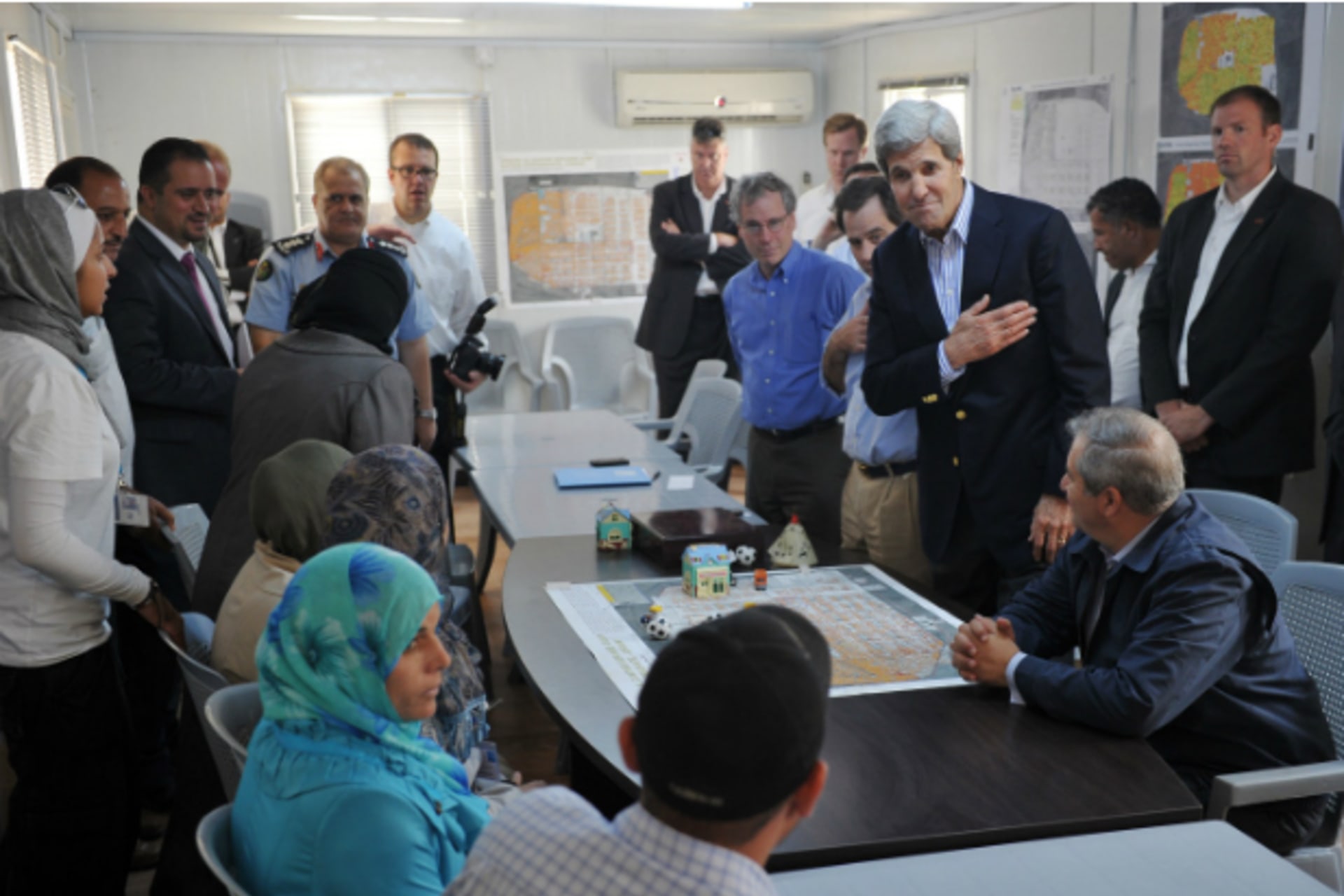Don’t Gut the Foreign Operations Budget

By experts and staff
- Published
By
- Micah ZenkoSenior Fellow
This post was coauthored with my research associate, Amelia M. Wolf.
In what is becoming an annual practice, congressional appropriators are once again trying to reduce America’s $16.7 trillion gross federal debt by slashing President Obama’s $52 billion foreign operations budget request. The budget includes everything from embassy security to protect diplomats, vaccination programs to prevent new incidents of polio and measles, humanitarian aid for victims of war and natural disasters, and United Nations (UN) peacekeepers. All of this, and more, for an amount that is roughly a mere 8% of the $615 billion that the White House has requested for the Pentagon.
Though the foreign operations budget constitutes only one percent of the federal budget, House Republicans devote a disproportionate amount to time cutting it dollar by dollar each year. This does not makes a dent in reducing the federal deficit, and negatively impacts U.S. national security interests around the world. Last week, a House Appropriations Subcommittee voted to reduce Obama’s request by $11 billion to $40.1 billion. This would be a tremendous mistake as it would needlessly harm U.S. foreign policy and national security interests. The State Department and U.S. Agency for International Development must be fully funded as they have unparalleled capability for preventing conflicts, while protecting and promoting American interests and values in a sustainable manner.
Rather than supporting programs vital to preventing political instability and armed conflict, the Subcommittee proposed to completely defund certain programs. These include the Complex Crisis Fund, which has facilitated rapid responses to situations in Cote d’Ivoire, Kenya, and Tunisia, Conflict Stabilization Operations programs, the United States Institute of Peace, the premier organization in research and teaching conflict prevention and peacebuilding, as well as the UN Population Fund, the UN Educational, Scientific and Cultural Organization (UNESCO), and other UN agencies.
Back in 2011, former secretary of defense Robert Gates warned that everything the U.S. military had accomplished in Iraq was at risk if the State Department did not get funding to continue its work after the withdrawal of U.S. troops. That warning may become a reality, as violence in Iraq has skyrocketed in recent months, with 1,045 deaths recorded by the UN in May, the highest since June 2008. As troops continue to drawdown in Afghanistan, the trillion dollars spent on the wars in Iraq and Afghanistan over the past decade could go to waste. It wouldn’t be the first time. After spending “billions to drive the Soviets out of Afghanistan…we couldn’t get a million dollars to build schools in Afghanistan in 1989 and 1990,” and the Taliban soon gained control, Gates reminded the Senate in 2011.
As President Obama stated plainly: “Foreign assistance is a tiny fraction of what we spend fighting wars that our assistance might ultimately prevent.” Indeed, just one soldier costs $531,427 per year on average when deployed to warzones overseas. Or, consider the role of foreign assistance over military interventions when combating terrorism. As Sen. Lindsey Graham recently stated: “Improving life [in Africa] is a real blow to radical Islamists. You know if you can provide schooling, a health clinic, clean drinking water, that really is a blow to their agenda.”
It is revealing that the strongest proponents of funding diplomacy and foreign assistance are senior officials in uniform. In 2010, chairman of the joint chiefs Admiral Michael Mullen, warned in a letter to Congress: “The more significant the [budget] cuts, the longer military operations will take, and the more and more lives are at risk!” In March, Admiral James M. Loy noted when speaking of the State Department and USAID: “The U.S. has underinvested in these very tools that are vital to our national security, to our economic prosperity, and to our moral leadership in the world.” Or, as Gen. James Mattis, Commander of U.S. Central Command, told the Senate bluntly in March, “If you don’t fund the State Department fully, then I need to buy more ammunition.”
The latest attempts by House Republicans to slash the foreign aid budget will have drastic implications. Misallocating conflict prevention and development tasks to the Pentagon—a trend in recent years—is an expensive stop-gap measure, and one which cannot preventively address the underlying drivers of instability in conflict-prone countries. This is a task best suited to well-trained and adequately funded civilian agencies. If House Republicans succeed at slashing funding for diplomatic and foreign assistance programs, it might save fractions of pennies today, but it increases the likelihood for more costly and sustained military commitments in the future. Decreasing support is “literally a matter of life and death for some civilians in war-ravaged nations,” as Bryan Bender wrote in the Boston Globe. Although Bender spoke specifically about negative implications for U.S.-funded operations to remove leftover unexploded land mines and bombs, the consequences of budget cuts will span a breadth of initiatives that focus on protecting civilians and preventing conflict.